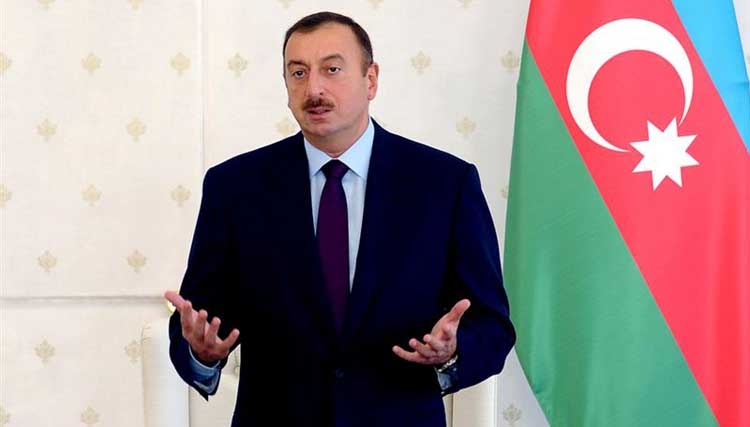Azerbaijan has been known to have more natural resources than most nations. However, it is its geographical location and history that sometimes has been more important in understanding its Intelligence Community.
Since 1967 the Azeri Ministry of National Security was headed and influenced by the less than popular Soviet KGB. Until 1967 the security authorities of the republic had been headed only by non-Azerbaijanis. In the same year General Heydar Aliyev was appointed as chairman of the KGB of Azerbaijan. In October 1991, after the Republic of Azerbaijan gained independence, the Ministry of National Security of the Republic of Azerbaijan was established on the material-technical basis and staff of the State Security Committee.
This intelligence agency, which we will refer to from here on out as the MNS, has numerous departments of communication. The MNS frequently deliberates and bases its decisions on the methodologies within the internal State authority established under the Republic of Azerbaijan, better understood as the Milli Majlis, which relatively recently changed how long a President could hold office. Now the President can be reelected as many times as necessary while the country is at war. Before this amendment, the President could only hold office for up to three terms, each having a five year period. Understand that each Parliamentarian deputy, all 125 of them, are put into position by the President. There are no debates about putting laws into Congress or by Congress. Rather, the influence of political clans takes precedence.
One of the more recent discussions on corruption was the firing of Eldar Mahmudov, the Minister of National Security. The President, Ilham Aliyev, did not give a reason as to why he was fired nor was he required to. “Azerbaijani President Ilham Aliyev has dismissed his powerful security minister in an unexpected move against an official who was widely seen as an Aliyev loyalist. Aliyev announced the dismissal of National Security Minister Eldar Mahmudov in a decree that was published on his website. He did not provide any explanation for the decision. The 59-year-old Mahmudov had served at the post since 2004. Opposition politicians complained that Aliyev’s failure to explain the reason for Mahmudov’s firing showed that there was no transparency in the country’s political decision- making process. Critics have long accused Aliyev of authoritarianism, corruption, and rights abuses. Aliyev also dismissed his previous national security minister, Namig Abbassov, in July 2004 without providing any reason.”
Minster Mahmudov was considered to be financially indulgent, for lack of a better term, stealing money that went into a bank that was owned by his cousin. Compounding these events was the fact that the editor of the most popular newspaper within the country reporting on the story was related to the President himself. The political clans mentioned earlier are extremely important in understanding the powers of the President, which thereby impact the intelligence-gathering techniques and strategies of the MNS.
“The political and economic system in Azerbaijan is largely based on a pyramidal web of patronage. Clans, mainly based on regional origin as well as the ruling elite, keep the system intact to secure their financial and power interests. Two clans, the Nakhichevanis and Yerazi, have dominated politics for decades. Heydar Aliyev had his origin in both clans, which gave him a strong powerbase. The Aliyev family stands on the top of the pyramid and makes sure that key positions in all spheres of society are taken by the closely related and like-minded. This structure has developed into extensive bureaucracy and corruption. Corruption in all spheres of society poses the largest threat to the functioning of the state. Most ministers have bought their jobs and many are directly related to the president. Moreover, membership of the president’s party, YAP, is a precondition for state employment.”
Consequently, the Azeri nation is mired in a situation that it really cannot control, nor is it able to voice its opinion to the authorities for fear of being incarcerated on charges that are often fabricated.
“There are limitations to freedom of expression and assembly and the rights to liberty and fair trial. The authorities have arrested dozens of political activists on bogus charges, imprisoned critical journalists, broke up several peaceful public demonstrations, and adopted legislation that further restricted fundamental freedoms. Torture and ill-treatment continue with impunity. The authorities did not effectively investigate credible allegations of beatings, threats, and other abuses in custody made by several arrested political activists.”
These difficulties and restraints that form the background noise of MNS functioning are producing ill-advised impacts that put the people of Azerbaijan at risk. The MNS thus operates within an area that is consumed by a history of corruption and severe limitations on its impartial independence. The MNS gathers intelligence on its own people and these surrounding influential countries: Russia, Turkey, Iran, Israel, and Syria.
Imagine the pressure, if you can just for a moment, being an agent within the Ministry of National Security. With no ability to perform your duties impartially or objectively and with your own personal livelihood obviously tied to how well you honor allegiance to the Presidential clans, the MNS ends up being largely just another subjective arm of manipulation by the President. When such corruption and bias is allowed to not just exist but actually blossom within the intelligence community, then it is not just the civil liberties of the people or the general level of freedom of Azerbaijan that becomes compromised: the actual national security of the country vis-à-vis the global community becomes undermined. The future of Azeri national security and perhaps the very legitimacy of its intelligence community, in the form of the MNS, have a long road of revision and reform in its future if Azerbaijan wants to truly play a bigger role regionally across the greater Caspian with integrity and effective power.


